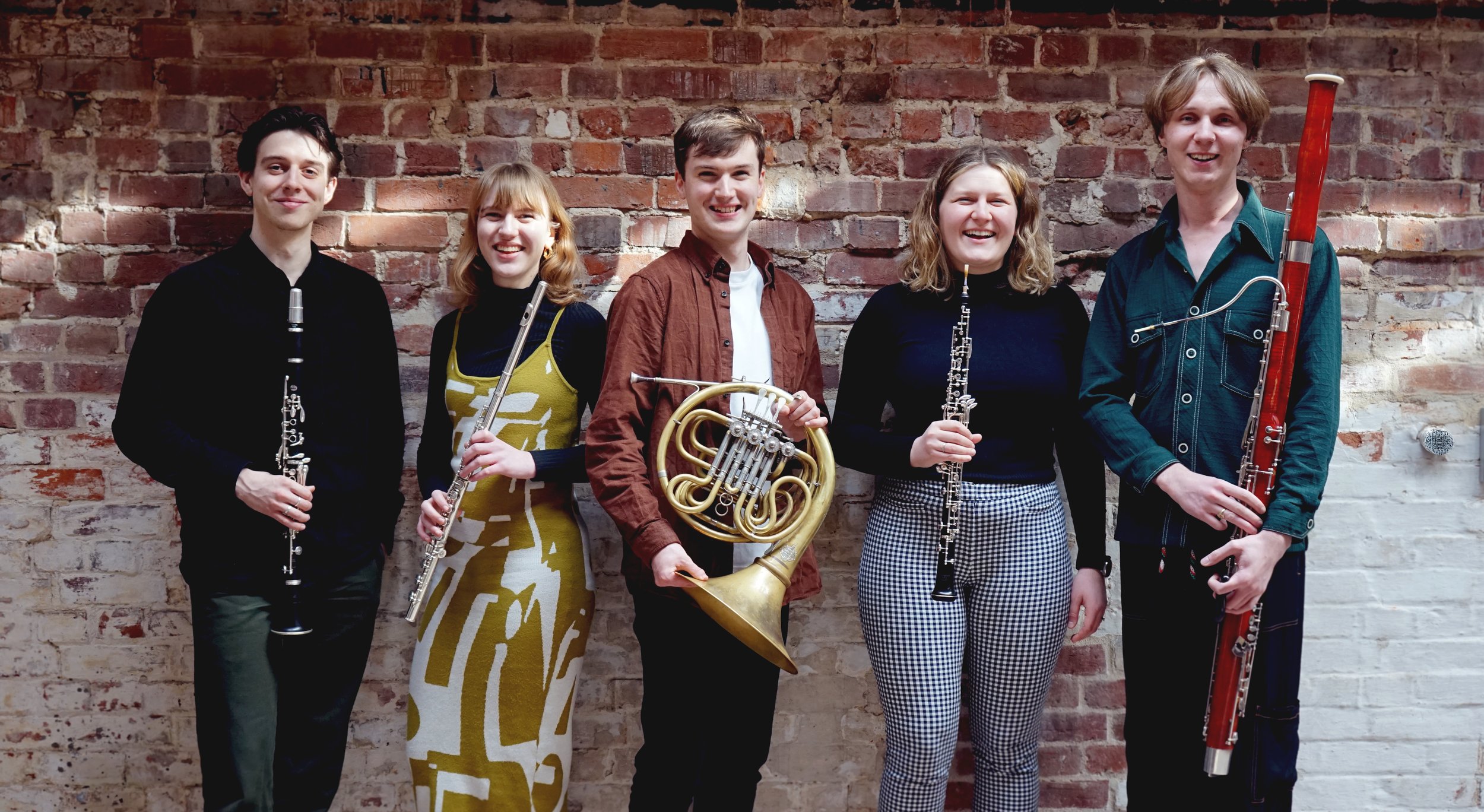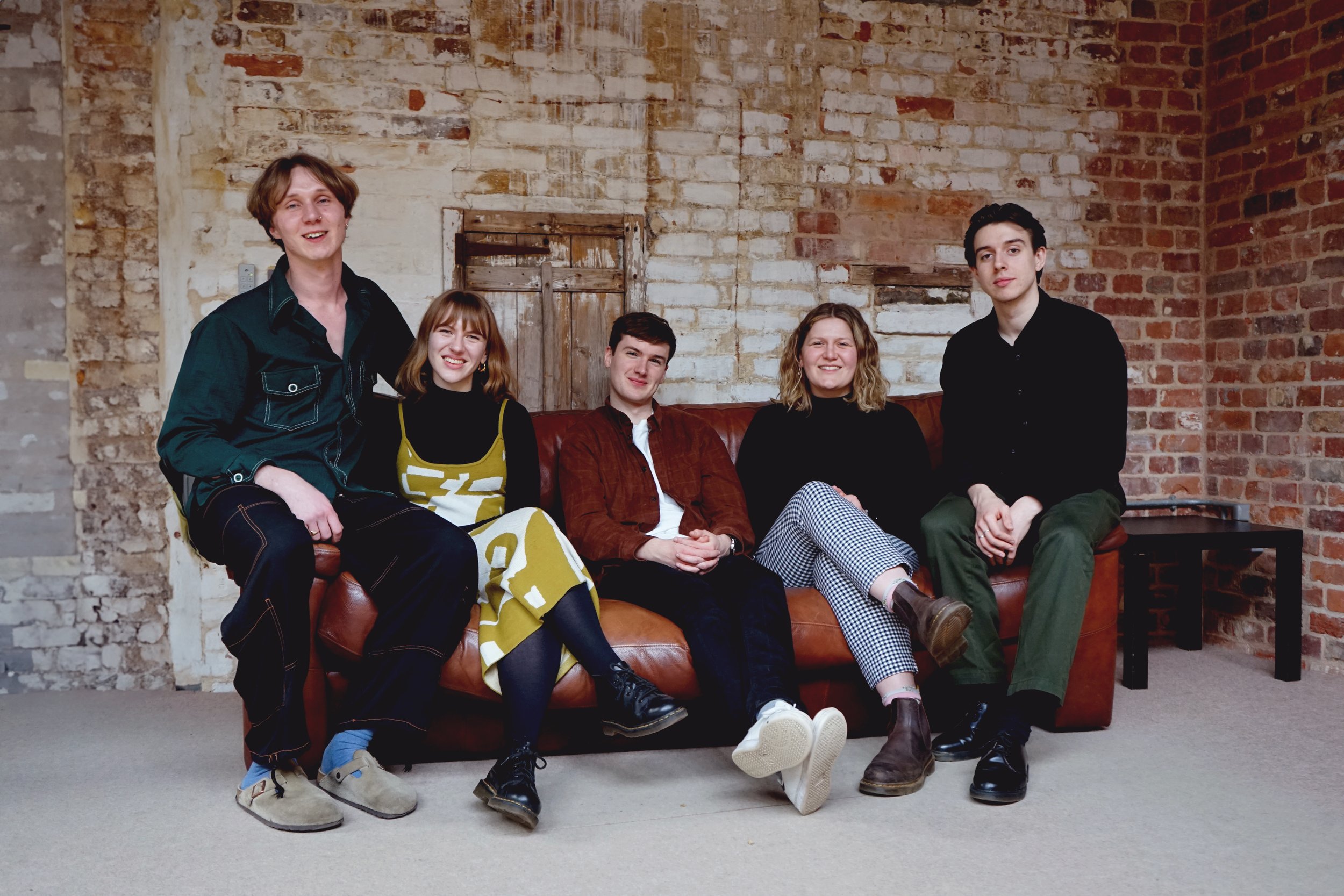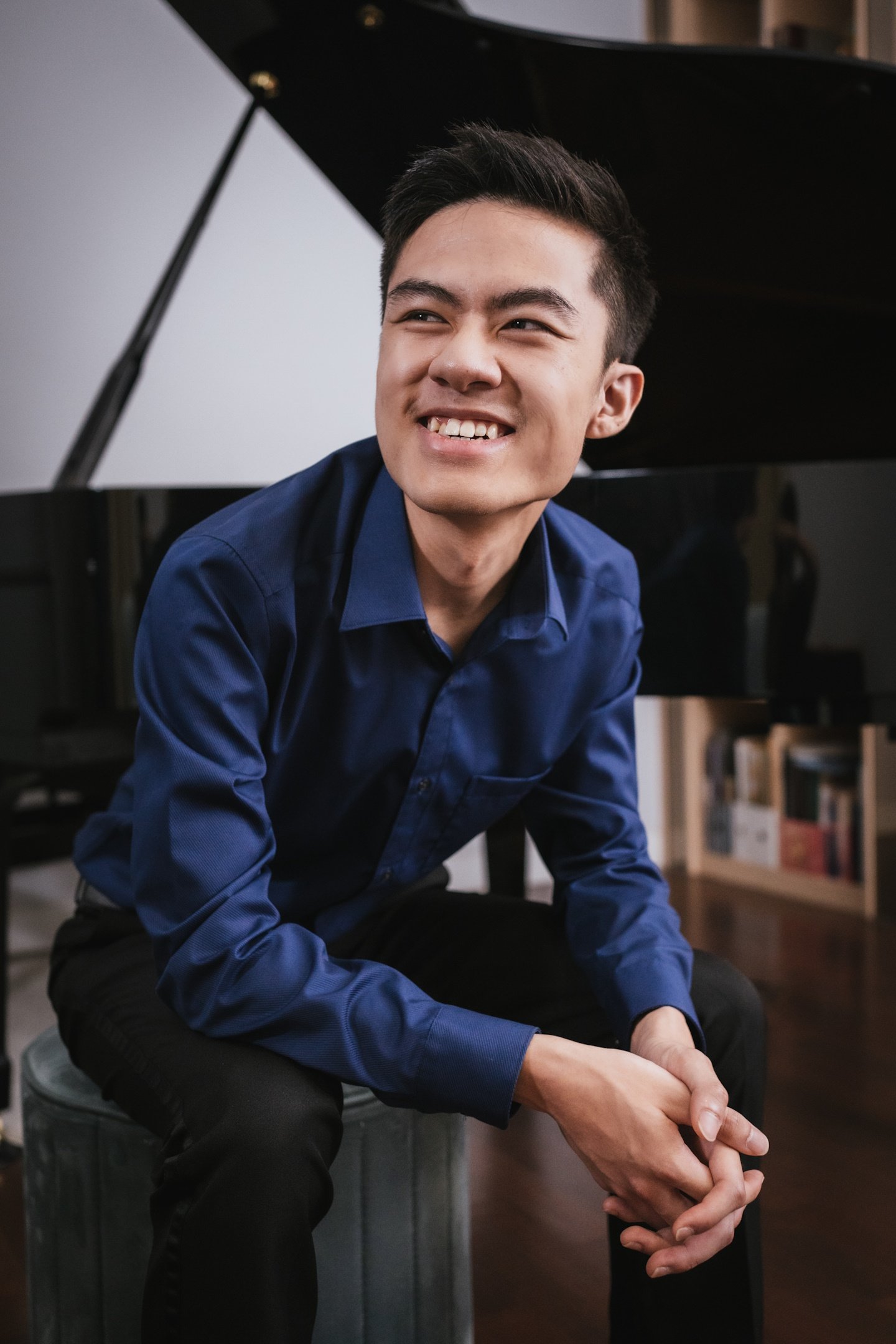In the Room Press Kit
Listen here
Listen to two of the singles here: David Nunn’s arrangement of the third sonata from Leonarda’s Op.16 set: a joyful, kaleidoscopic romp through many Baroque styles.
Geoff King’s meditative rare phases of flow explores the halting nature of the creative process.
Track List
Isabella Leonarda: Sonata Op.16, No.9 (arr. Geoff King)
Geoff King: Reflection on Sonata Nona
Geoff King: rare phases of flow
Isabella Leonarda: Sonata Op.16, No.3 (arr. David Nunn)
David Nunn: Reflection on Sonata Terza
David Nunn: lockwood
Jon Paul Mayse: The Invention of Oil
Isabella Leonarda: Sonata Op.16, No.10 (arr. David Nunn)
Isabella Gellis: Strange Isabella
Georgia Denham: legs, bodies, arms
Recorded 10 & 11 August 2023
Snap Studios, Harringay, London
Ben Gardiner, producer
Eoghan O’Dowd, engineer
Isabella Leonarda’s Op.16 sonatas are the earliest surviving set of sonatas written by a woman.
In the Room expands the reach of her music to the modern concert hall and to wind quintets, an ensemble underserved by old music.
This album presents arrangements from the earliest surviving collection of sonatas written by a woman. That woman is Isabella Leonarda (1620-1704), an Italian nun who lived a long and productive life at her convent in Novara, Italy. As the main music teacher in the convent, she was tasked with overseeing, and often personally delivering, the music instruction to the more junior nuns, including writing music for them to play and sing.
Her musical work came in addition to the other duties in the convent expected of a senior sister: administrative, financial, and devotional activities took up much of her time. Yet despite all of this, and as she’s very careful to note in the introduction to her Op.16 sonatas, she never let her composing take any time away from her other duties.
Despite living in a convent, Leonarda was not in complete isolation either physically or culturally. The Op.16 sonatas, published in 1683, show a strong stylistic similarity to Corelli’s trio sonatas, Op.1, published two years earlier, and with which Leonarda was almost certainly familiar.
Her sonatas are dedicated to Federico Caccia, a Novarese nobleman and lawyer whose star was on the rise: ten years after the publication of these sonatas he would become the Archbishop of Milan. Leonarda arranged for the publication of these sonatas to raise money for the convent; by dedicating her sonatas to Caccia, she was making a savvy bid for more patronage.
From what limited evidence that we have of Leonarda’s life, a picture emerges of a woman whose career balanced piety and pragmatism, musical craft and managerial skill. While the structures through which she moved are no longer familiar to most, the shrewdness with which she promoted her music and her convent are both familiar and admirable.
In this album we want to help revitalise Leonarda’s standing in early Baroque music by presenting her music in a modern context. This album combines arrangements of three of the Op.16 sonatas, four entirely new pieces, and bridging the gap, a modern ‘reflection’ on each of those three sonatas. These reflections borrow material from a given sonata but filter it through a new sonic lens, focusing and amplifying a single component.
Ensemble Renard are similarly interested in filtering music through a new sonic lens. In an ensemble with as many timbral colours as a wind quintet (and for which the original repertoire starts fairly recently), playing arrangements of old music allows us to engage with the past through a series of playful counterfactuals: what if Leonarda had written for wind quintet? What are the expressive possibilities of a timbral shift?
In addition to Leonarda’s music and the small responses to it, In the Room presents four new pieces, each in their own way an interpretation of meditation and solitude. Georgia Denham’s ‘legs, bodies, arms’ imagines the transcendent peace of going for an early morning row. Geoffrey King’s ‘rare phases of flow’ takes its name from a passage in Sara Baume’s book handiwork about the intermittent periods of fast progress in any creative endeavour. Jon Paul Mayse’s The Invention of Oil recreates the quiet, forgotten sounds that must have accompanied Jan van Eyck’s development of oil painting in the 15th century. David Nunn’s lockwood is music for a solitary walk on the Walthamstow Marshes during lockdown. All of this music was written in 2020 and 2021; just as Leonarda was largely confined and writing for a small group of close collaborators, so too did we.
About the Creatives
Ensemble Renard
Ellie Blamires, flute
Francesca Cox, oboe
James Gilbert, clarinet
George Strivens, horn
Patrick Bolton, bassoon
Julian Chan, piano
Stomping Ground
Geoff King
Jon Paul Mayse
David Nunn
Georgia Denham, composer
Isabella Gellis, composer
Ensemble Renard comprises five of the country’s most outstanding young musicians. Together, they exist to explore a wide range of timbral possibilities within modern day chamber performance. Centrally a wind quintet, Ensemble Renard’s frequent collaboration with composers and guest instrumentalists allows them to showcase a kaleidoscopic variety of colours, notably in their work with the Stomping Ground collective and pianist Julian Chan. Their debut album ‘In the Room’ represents the culmination of several years of artistic development, and embodies the ensemble’s critical role in shaping the future of chamber music in Britain.
Stomping Ground is a London-based multimedia arts collective engaging and expanding contemporary classical audiences through innovative, high-calibre, and multi-modal concert experiences. Through simple stagecraft like fabric enclosures and projections, SG aims to create an experience in which the themes are expressed in every facet of the concert, from the programme to the stagecraft to the seating of the audience. SG’s work as consultant producers has included projects at The Place, London and Tête a Tête Opera Festival. SG comprises composers David Nunn, Jon Paul Mayse, and Geoff King.
Rapidly developing a reputation as one of the most innovative pianists of his generation, Julian Chan has given performances at numerous prestigious venues across the UK, including Wigmore Hall, Southbank Centre, St John’s Smith Square, and the Sheldonian Theatre. Performing music by a particularly diverse range of composers, he has given alluring recitals featuring works by figures from Sweelinck to Messiaen, from Alkan to Rzewski, unifying these various styles in a captivating manner.
A passionate composer and performer of new music, Julian has collaborated with eminent composers such as Hans Abrahamsen, Anna Thorvaldsdottir, Deborah Pritchard, Elena Langer, and Peter Seabourne.
Reviews
“Renard are one of the brightest stars in an exciting firmament of really great new chamber music groups. I was delighted to select them for Aldeburgh’s Britten Pears Chamber Connections course in 2023, and they impressed me massively there. They have a dedication that’s really inspiring, and they are hugely invested in their development. They have a seriousness and warmth for their music, for each other and for their audiences that I find very mov, and they already have a rich and broad repertoire, which is enhanced by some stunning arrangements most originally done. I expect them to be a really important part of the Chamber Music scene in the future, and I am happy to watch their progress with pride and admiration.”
Nicholas Daniel OBE, Artistic Director, Orion Orchestra






